14 things that can negatively impact your iPhone resale value
Are you considering selling or trading in your iPhone? In this guide, we’ve listed every major reason that can lower the final resale price.
The purpose of this guide is to help you understand what can affect the final price of your old iPhone. This is also helpful for someone buying a used iPhone and can help them negotiate the price accordingly with the seller.
Another important thing to consider is that when you trade in your iPhone with Apple through its official website or store, they primarily just check whether the buttons, screen, back glass, and camera are in order or not. But when you’re selling your used iPhone to another person or third-party service, they take several things into account, such as battery health, in-box accessories, and more, before settling on the final price.
Also see: 15 things to do before selling, giving away, or trading your iPhone or iPad
1. Activation Lock status
If an iPhone is locked by Find My Activation Lock and the seller cannot remove this lock using their Apple Account, then the value of this phone is next to zero for the purchaser, provided they are not trying to salvage parts like battery, screen, or other components.
Recently, Apple has even started pairing internal components, such as display, battery, and camera units, to the user’s Apple Account. This is to deter repairs made using parts taken from stolen or locked iPhones.
So if you are selling a used phone or looking to buy one, make sure it has no Activation Lock.
2. Warranty status
If your iPhone is still under warranty, that’s a big positive that can boost the resale value. You can check the warranty status of your Apple devices here.
3. Touchscreen issues
Your iPhone’s resale or trade-in value may go down significantly because of the following issues with its display:
- Touchscreen is not working
- The screen reacts erratically to normal finger touch
- There are white, green, pink, or colored lines, black or white dots, or other types of distortion in the display
- The screen has cracks, chips, big scratches, or other major physical issue
Of course, Apple and probably the person who’s buying your iPhone will overlook minor scratches on the screen that have occurred because of everyday use.
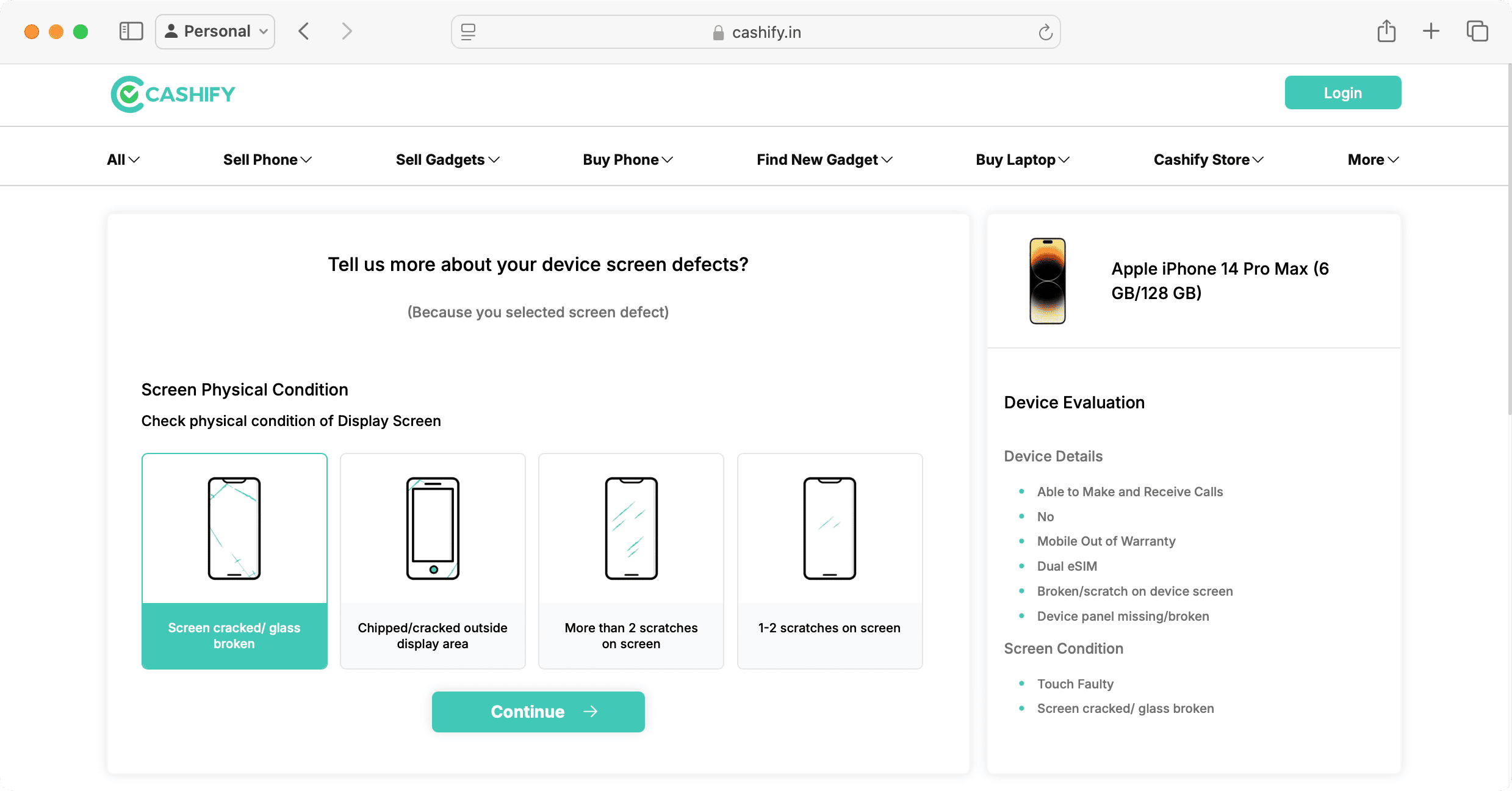
4. Hardware buttons are not working
If the side power button, volume buttons, Home button, mute switch, Action button, or the new Camera Control button are not working, this is sure to reduce the final resale value.
All things considered, if you still have a super interested buyer, make sure you explain to them that it’s possible to power on or off the device and change the volume even when the physical buttons are not working.
5. Major scratches, dents, and cracks
While minor imperfections are overlooked, if your iPhone has several scratches, dents because of a hard fall, cracks on the corner, or if the back glass is broken, this is sure to lower the resale amount.
In case the back glass is cracked, one way to skip the expensive repair is to cover it up with a skin or case.
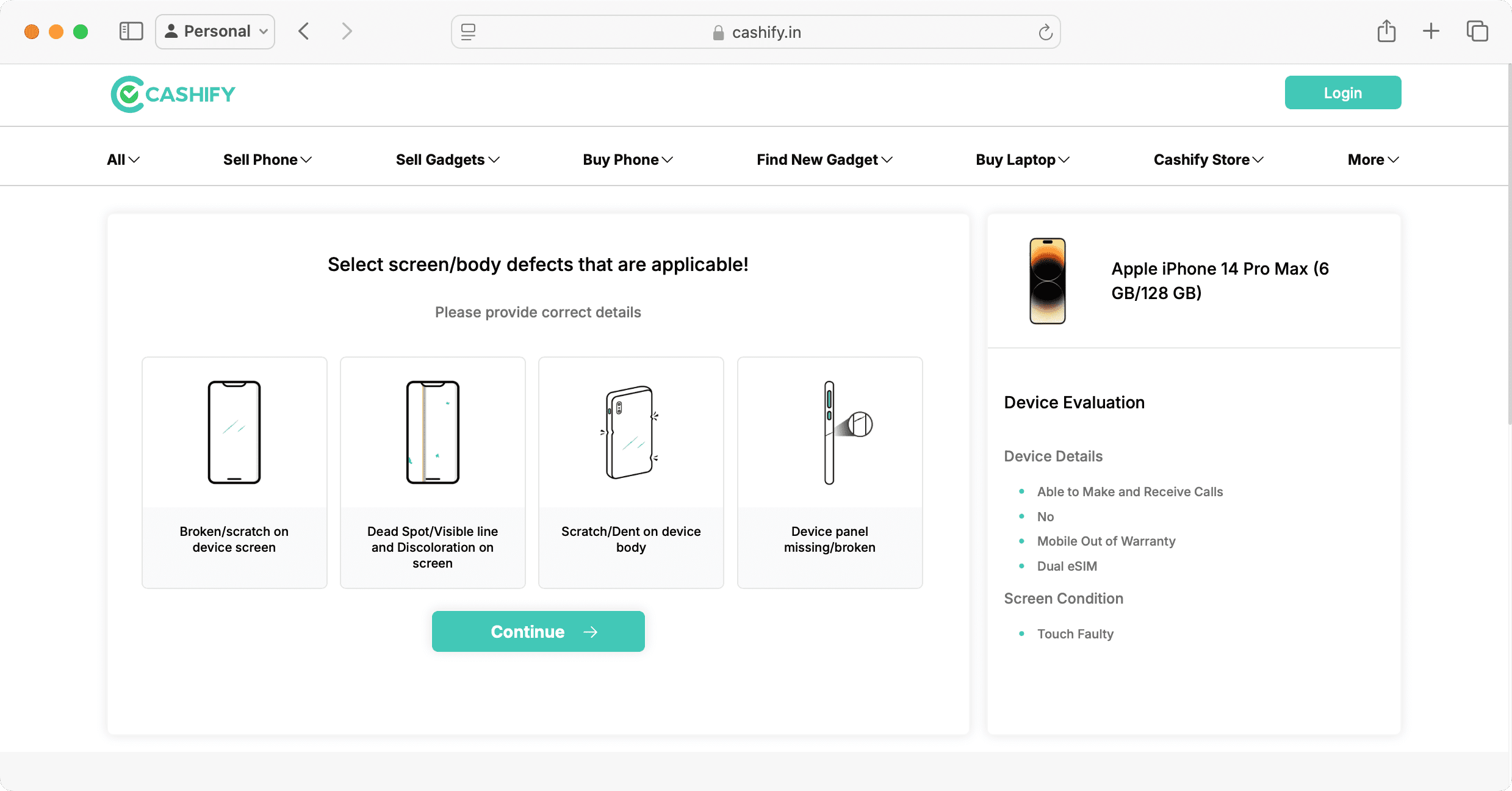
6. Issues with the charging port
iPhone 8 and later support wireless charging, so even if the Lightning or USB-C port isn’t working, the next person can charge their device. However, the main port charges the phone faster and is also used to sync it via computer, back up data, or restore it through Recovery mode. So, having a non-working port will be a point of contention and cause a drop in the resale value.
7. Age of the iPhone
This is an obvious factor that determines the value of an old iPhone. A four-year-old iPhone 12 is sure to fetch far less than an iPhone 15 or another iPhone 12 that was purchased recently.
8. The iOS version your iPhone supports
Most iPhone models get at least five years of major software updates, which adds new features and ensures longer app support.
At the time of writing, iOS 18 is the latest iOS version, and iPhone XR is the oldest model that supports iOS 18.
So, if you have an iPhone older than XR, it’s sure to fetch very little resale amount. Note that models like XR, XS, and 11 are also nearing their final years of software support.
9. Battery health at the time of selling
A lower battery health equates to a lower resale value. A number above 90% is very good, but if it’s around 70%, the next user may want to replace the battery, and they will accordingly decrease the final purchase price.
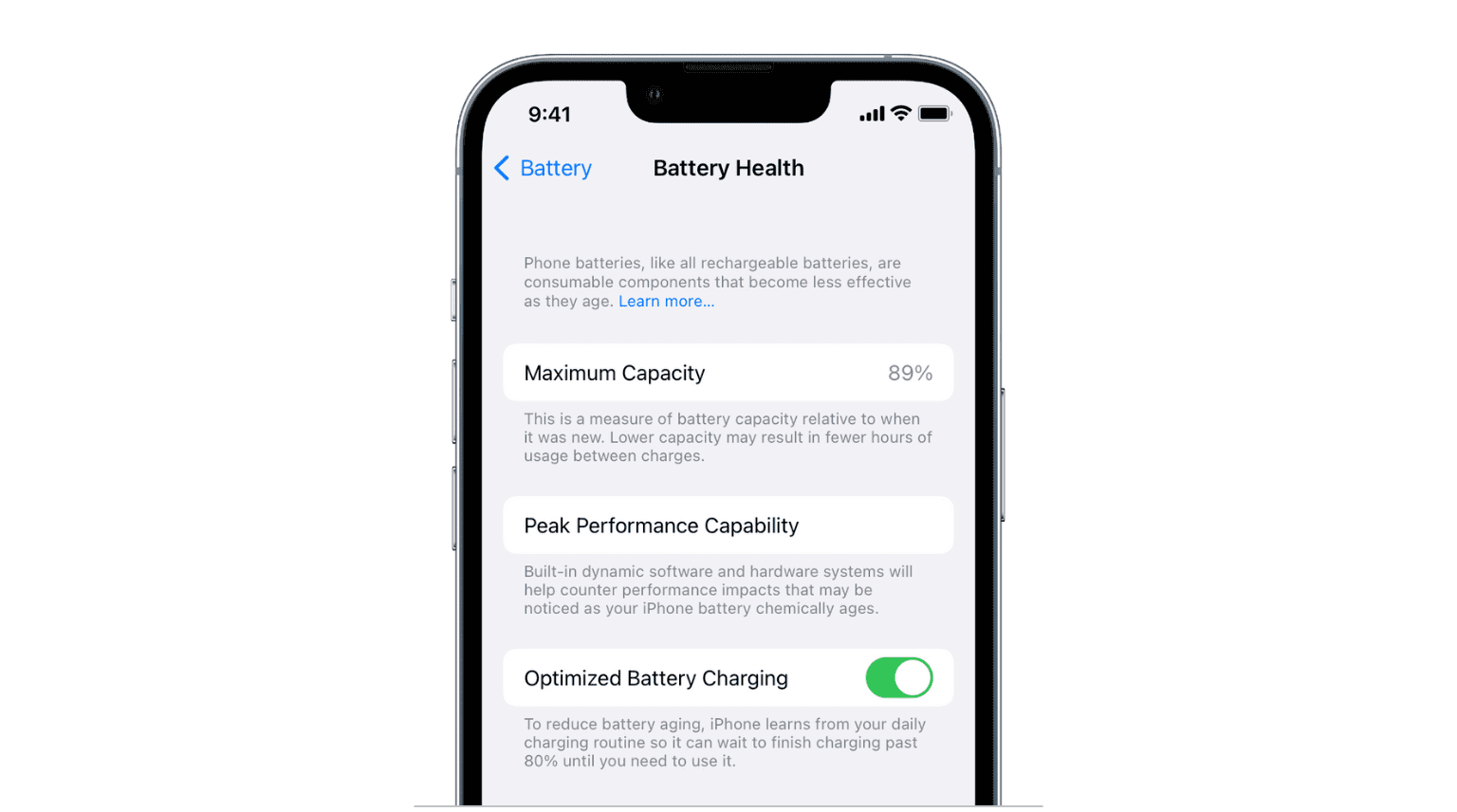
10. Microphone, proximity sensor, speakers, and other similar issues
In addition to an average person buying your used iPhone, many third-party platforms that buy and resell used phones check for these things.
When you try to sell your phone to them, they may install their dedicated app or use a browser-based tool and perform checks to ensure things like the microphone, sensor, Face ID, and so forth are working properly.
In case there are issues, they will reduce the quoted price or cancel the deal.
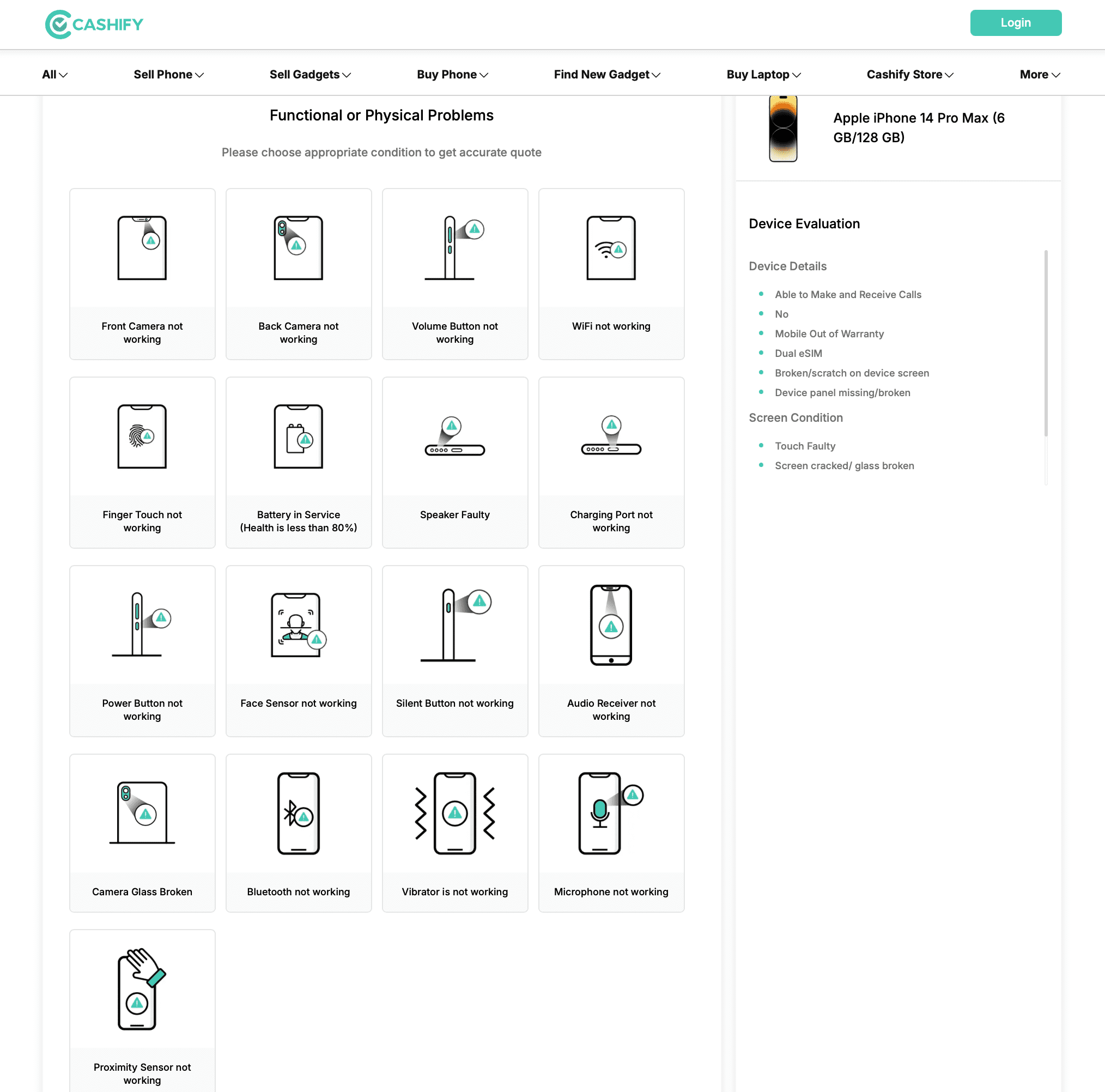
11. Internal storage capacity
Obviously, an iPhone that’s just 64 GB is sure to attract significantly less than one that’s 128 GB or more. The seller cannot do anything to change this, but if you are buying an old iPhone, you must consider this while evaluating the price.
12. Lack of box, original accessories, and bill
Recent iPhones only come with a charging cable and SIM ejector tool. So, there isn’t much to include. Still, the lack of these can be a deterrent for the next buyer, and they may negotiate to shave off a few dollars of the final price.
Additionally, in many instances, new buyers, as well as third-party reseller services, appreciate or require the bill and the original box with the sticker that shows the same IMEI that’s in iPhone Settings. A valid receipt is one of the simplest ways to establish legitimate ownership of that iPhone.
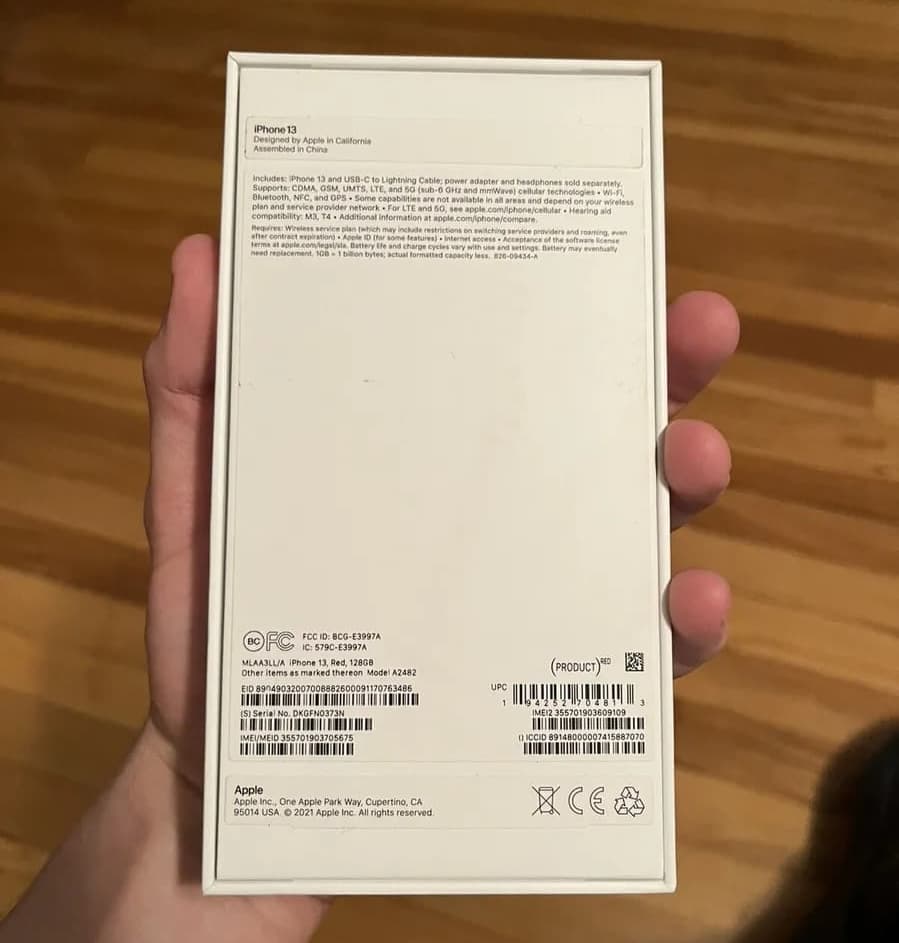
13. Prior repair history
Like all other electronics and appliances, if your iPhone was repaired in the past, its resale value will be negatively affected. Newer iPhone models display the repair history in Settings > General > About section, but older models do not. Additionally, if the iPhone was repaired with a non-genuine part, it will diminish the price even further.
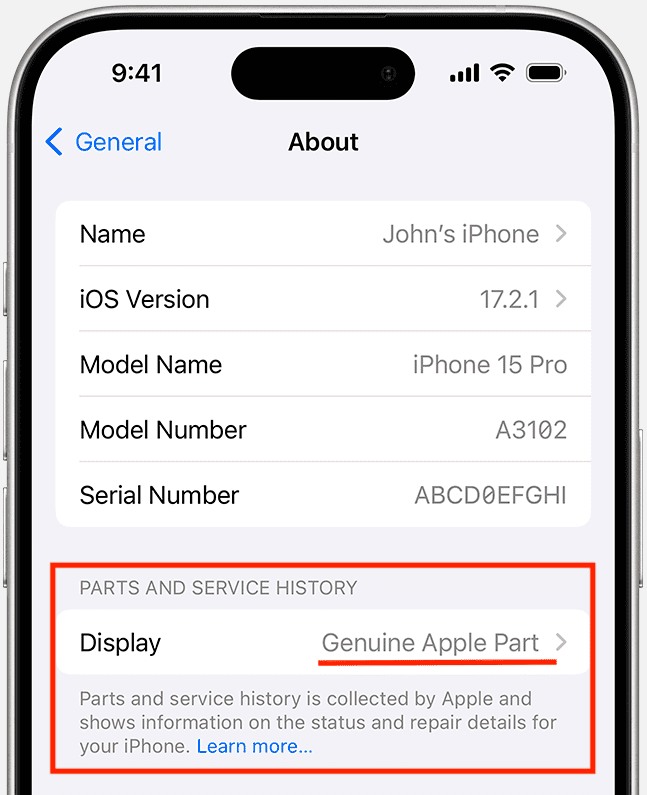
14. Is the iPhone a new or refurbished unit
Some informed buyers may have reservations about buying a second-hand iPhone that was refurbished and not new in the first place.
Remember that just the iPhone’s model number is enough to confirm whether it’s a new or refurbished unit.
On a related note: How to check if the second-hand iPhone you bought is original or counterfeit
Source link: https://www.idownloadblog.com/2024/09/26/things-that-impact-iphone-resale-value/



Leave a Reply